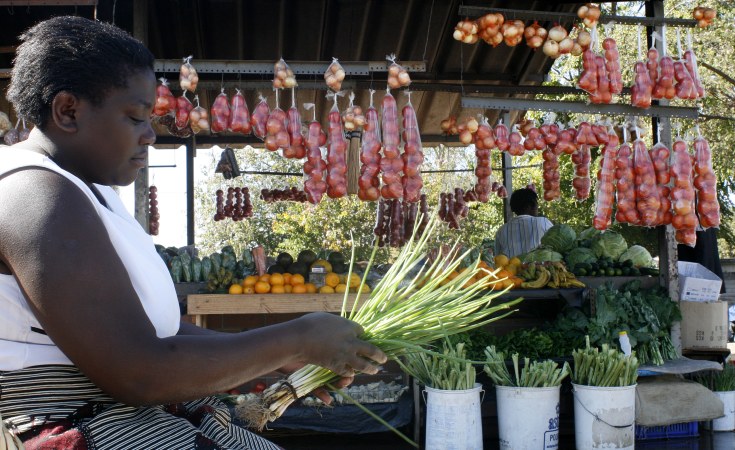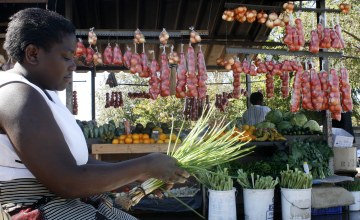Donald Kaberuka , the President of the African Development Bank, has cautioned that Africa's recent economic gains will only be sustained by fast tracking and deepening regional integration across the continent.
He was speaking on Monday, October 28 at the opening ceremony of this year's African Economic Conference (AEC) in Johannesburg under the theme, "Regional Integration in Africa."
The continent's structural transformation can not take place without investment in infrastructure and regional integration, Kaberuka said.
"Whoever believes that Africa is rising can find plenty of evidence, but we Africans should not make the mistake of confusing a turning point with a tipping point.
"We have come to a turning point, we are not at a tipping point," Kaberuka cautioned.
He also emphasized the need to address non-tariff barriers across borders to facilitate trade.
"There is no way this continent can sustain seven per cent economic growth until we resolve issues around infrastructure and, in particular, energy.
We can not sustain seven per cent with these 54 fragmented markets," Kaberuka said, adding that the "Africa Rising" narrative must be engaged in a critical way.
While African countries have made progress in integration, results have been less impressive than expected, with intra-African trade estimated at between 12 per cent and 16 per cent.
To reach its goal, the AfDB is developing a new Regional Integration Strategy (RIS) for the period 2014-2023, which marks a steep change in its approach.
"There is a challenge of soft integration issues such as harmonizing policy, movement of goods and services - we need to do a lot more," said Nkosazana Dlamini-Zuma, the Chairperson of African Union Commission.
Zuma underscored the need for better coordination of policy, addressing the issue of overlapping membership between different regional economic blocs and collective ownership of the integration process to facilitate implementation.
For his part, Abdalla Hamdok, the Deputy Executive Secretary of United Nations Economic Commission for Africa(ECA), underscored the need for countries to harmonize regional and domestic laws to facilitate implementation of the different protocols.
"In order to realize the benefits of regional integration, our leaders should view these arrangements as more than sound bites in economic and politics and dedicate the effort to make them work," he said.
Speaking at the ceremony, Pravin Gordhan, South Africa's Minister of Finance, emphasized the need for African countries to take advantage and assert themselves in the ongoing global power shift.
"Too often we are in these global meetings, but with minor voices and inability to project with a common agenda for what we want to achieve ourselves and in the global agenda," he said.
Gordhan said the continent has an opportunity to offer alternative models of development and create options that are appropriate for the respective countries.
Currently, while there are eight recognized African Union Regional Economic Communities - trade blocs and political - implementing the Abuja Treaty, degree of success varies with the East African Community (EAC)most advanced as it launched its Common Market in 2010.
The Common Market for East Southern Africa (COMESA) launched its Customs Union on June 2009.
ECOWAS and SADC have made progress in building their FTAs and plan to launch their Customs Union in 2015 and 2013, respectively. ECCAS has launched its FTA in 2004 but is facing enormous challenges in implementing it.
The AEC is an annual business intelligence forum organized by the African Development Bank (AfDB), the UN Economic Commission for Africa (ECA) and the United Nations Development Programme (UNDP), to discuss the continent's major economic development challenges.
The conference groups government leaders, policy-makers, researchers and development practitioners from Africa and other parts of the world. This year, discussions will focus on how the continent of 54 disparate states can overcome its fragmentation and pool resources for industrialization and productive growth.



